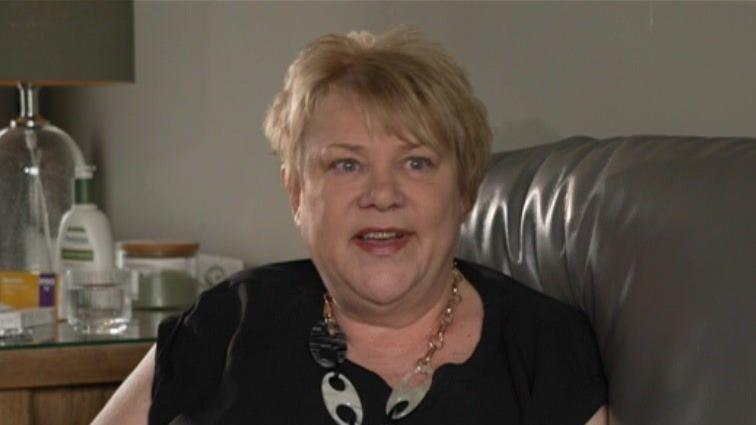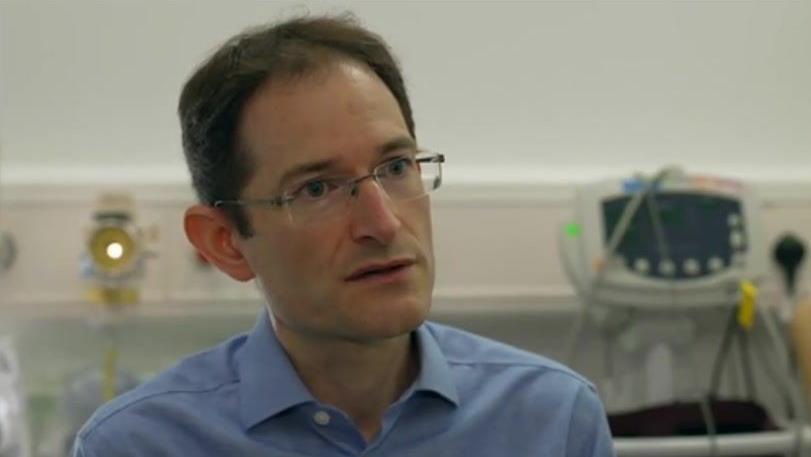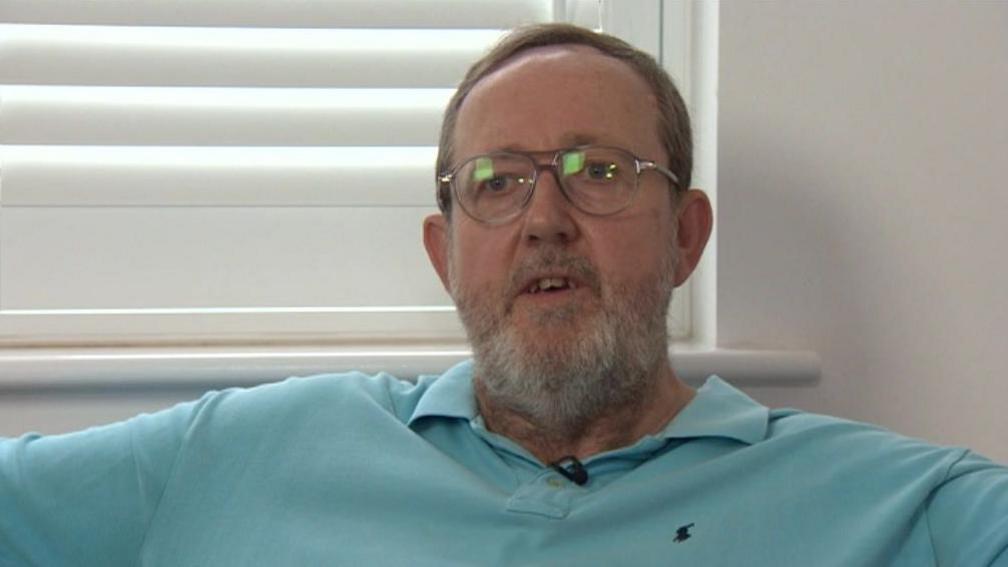New drug trial brings hope to people unable to cry

Jane Lawrence has suffered with Sjögren's disease for ten years
- Published
Patients with an incurable condition that leaves them struggling to produce tears or saliva say a drug trial has changed their lives.
According to results published in the Lancet, phase two trials of Iscalimab, external showed at all three doses the drug had a positive effect on Sjögren's syndrome - a rheumatoid disease associated with chronic fatigue.
Prof Ben Fisher at the University of Birmingham, one of the two main authors on the paper, said there was quite strong evidence the drug made patients feel better.
More extensive trials will be needed before the drug can be rolled out more widely.
Sjögren's affects 10 times more women than men and because it often impacts them in their 40s or 50s, can be disregarded as menopause symptoms.
It is the second most common rheumatoid disease after arthritis and Prof Fisher has said it remains relatively unresearched.
The rheumatologist at Birmingham's Queen Elizabeth Hospital explained that it affected the glands and could cause extreme dryness.
Patients suffer chronic symptoms of fatigue and in some cases, if left untreated, it can be life-limiting, damaging the lungs and causing a blood cancer – lymphoma.
A stage two trial showed that Iscalimab was effective in suppressing the inflammation that leads to harm in patients. It works by blocking a protein CD40 that stimulates the immune system.
Overall, 460 patients were screened and the trial showed a statistically significant improvement over placebo.

Prof Ben Fisher said patients felt better after the trial
Prof Fisher said: "As well as impacting the disease, unlike other drugs that I have tested before, we found that there was quite a strong suggestion that patients actually felt better.
"I think that there is evidence that it actually does work and it looks very promising. It needs a stage three trial to confirm that, but it would be very disappointing if that trial didn’t proceed."
Drug development can cost a billion pounds and a phase three trial would require millions to be spent.
The latest data presented to the European Alliance of Associations for Rheumatology showed further improvements in patients at 48 weeks, but stated Iscalimab’s risk benefit required further evaluation.
Prof Fisher said there were concerns over a fatal infection suffered by one patient on the trial, which he explained was sometimes seen in patients who were immunosuppressed.
'I felt better in myself'
Jane Lawrence is among those in the UK living with the condition, having had Sjögren's disease for 10 years.
The 57-year-old from Rubery said of her experience taking the drug: "It was just amazing, my brain fog cleared. I felt better in myself. I had more energy. My mouth wasn’t as dry.
"My eyes weren't as dry. My cough calmed down quite a lot as well and I just felt that I was back to my old self."
But the events manager said that she had a flare-up within a month of coming off the drug and, despite all the creams and eye drops that she takes daily, she said her mouth ulcerated and the fatigue returned.
"If there was any opportunity to go back on the drug trial, then I would do it without hesitation," she said.
Follow BBC Birmingham on Facebook, external, X, external and Instagram. Send your story ideas to: newsonline.westmidlands@bbc.co.uk, external
Related topics
- Published10 January 2020

- Published13 March 2024

- Published10 May 2024
- Published24 April 2024

- Published10 May 2024
